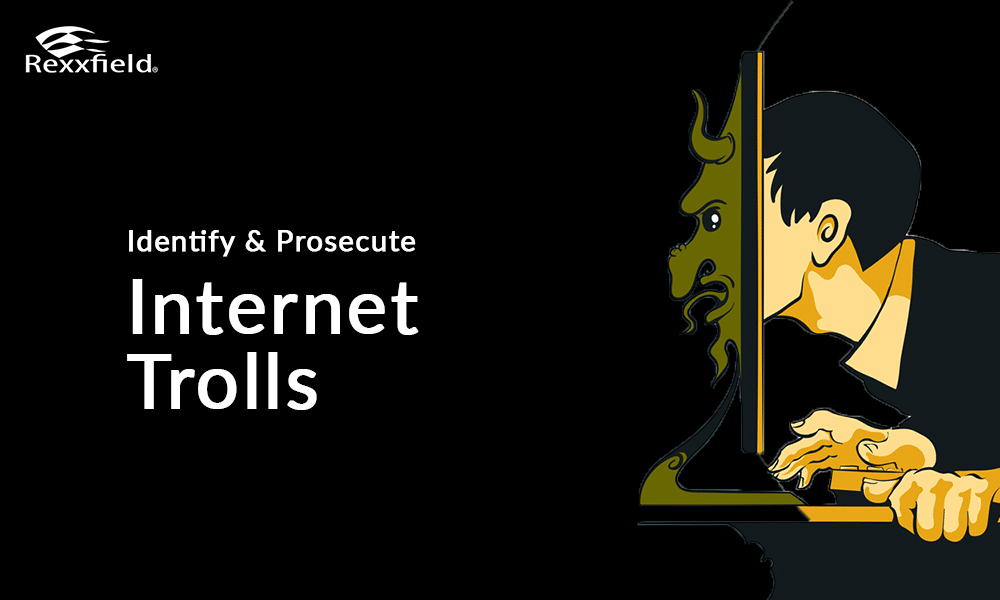Internet trolls are individuals who engage in online behavior, characterized by deliberately posting provocative, offensive, or inflammatory content with the goal of eliciting emotional reactions and stirring up controversy within online communities.
What are Internet Trolls
Trolling can take various forms, including:
Offensive comments: Trolls often make rude, derogatory, or offensive remarks in comment sections, forums, or social media posts. These comments are designed to upset or anger others.
Flame wars: Trolls may engage in heated arguments or debates with the intention of escalating the conflict and creating chaos within online discussions.
Impersonation: Some trolls impersonate other users, public figures, or organizations to spread false information or cause confusion.
Spamming: Trolls may flood comment sections, forums, or social media platforms with repetitive or irrelevant content, disrupting the normal flow of conversation.
Doxxing: In extreme cases, trolls may attempt to reveal private or personal information about individuals, potentially putting their safety and privacy at risk.
Manipulative behavior: Trolls may use manipulation tactics, such as gaslighting or psychological manipulation, to confuse and upset others.
Trolling behavior can vary in severity and intent. Some trolls do it for amusement or as a form of online “prank,” while others may have more malicious motivations, such as harassing individuals or promoting hate speech. Online platforms often have policies and mechanisms in place to combat trolling and maintain a more respectful and constructive online environment. However, trolls can be persistent and adapt to countermeasures, making it an ongoing challenge for online communities to manage such behavior.
Understanding Internet Trolls
Evita March, a Senior Lecturer in Psychology at Federation University Australia, conducted a study examining the predictors of engaging in malevolent trolling, focusing on gender, psychopathy, sadism, and self-esteem.
The findings revealed that gender, psychopathy, and sadism all emerged as significant independent factors contributing to malevolent trolling. In other words, if an individual is male, exhibits high levels of psychopathy, or displays a proclivity for sadistic behavior, they are more prone to engage in trolling activities.
Remarkably, the most influential predictor of trolling behavior was sadism. The greater someone’s enjoyment in causing harm to others, the higher the likelihood they would engage in trolling.
Conversely, self-esteem did not emerge as an independent predictor of trolling. However, a noteworthy discovery was made concerning the interplay between self-esteem and sadism. When a person possessed both high levels of sadism and high self-esteem, their inclination to troll increased. This result was surprising, as low self-esteem has typically been associated with other forms of antisocial online behavior, such as cyberbullying.

These results carry significant implications for how we address and respond to trolling incidents.
Firstly, based on the significance of psychopathy and sadism in the results, it becomes evident that an internet troll can be characterized as someone who lacks empathy, displays callousness, and takes pleasure in causing harm to others, all while evading personal responsibility.
Moreover, the prominence of psychopathy in the findings suggests that trolls possess a notable deficit in empathy, especially concerning their capacity to understand and internalize the emotions of others.
Additionally, the interaction observed between high levels of sadism and high self-esteem challenges the assumption that trolls engage in such behavior due to low self-worth. In fact, quite the opposite is true: those who derive satisfaction from harming others and hold a positive self-image are more likely to engage in trolling activities.
Identify and Report Internet Trolls
Even in the case of a tech-savvy hacker who conceals their identity behind proxies, it is still possible to uncover their true identity. Once you have successfully identified your online antagonist, you can pursue legal action against them. Utilizing online investigative services like our “identifying anonymous antagonists” service provides you with the evidence needed to bring the harasser to court and secure a court-issued order to remove defamatory content, putting an end to the harassment.
Rexxfield’s team of cyber tracing investigators, in collaboration with partner attorneys, boasts a proven history of successfully tracing and definitively identifying anonymous trolls responsible for malicious internet libel. We possess the capability to assist you in identifying your adversaries, frequently without the need for legal proceedings.
Eliminate detrimental content from Google
If you lack the financial means to enlist professionals in the task of identifying your tormentor, you have the option of requesting Google to remove the defamatory content. I recommend this course of action, particularly if you reside in a common law country. Our team at page1.me has a strong track record of success when it comes to clients from common law jurisdictions, as we engage with Google to eliminate the disparaging material from search results.
Mitigate harm through content suppression
If the aforementioned avenues prove unviable, you might consider content suppression as an alternative. This approach does not entail the removal of the content but rather substantially diminishes its impact by concealing it from public view. In some situations, this strategy may be the most prudent and cost-effective option, especially when your aggressor has ceased their harassment. However, if you continue to face online attacks and have reason to believe your cyberbully will persist, litigation may become the sole recourse.
How to Stop Internet Trolls
Stopping internet trolls can be challenging, but there are several strategies you can employ to mitigate their impact and maintain a more positive online environment:
Ignore and don’t engage:
The initial piece of guidance is reminiscent of a common lesson found in fairy tales: “REFRAIN FROM FEEDING THE TROLL.”
If an internet troll is clamoring for attention, it’s best to deny them what they seek.
Engaging with them may only fan the flames and embolden them to produce more offensive comments. In due course, their interest should wane, leading to their disappearance.
While it may be tempting to retaliate in a similar fashion, doing so would merely add fuel to the fire if you respond in kind.
Block or mute:
Most social media platforms and online forums offer features to block or mute users. Use these features to prevent trolls from interacting with you or seeing your content. Blocking can also help you avoid seeing their comments or posts.
Report abusive behavior:
If a troll’s behavior violates the platform’s terms of service or community guidelines, report them to the platform administrators. Provide evidence of the abusive behavior, and the platform may take appropriate action, such as warning, suspending, or banning the troll’s account.
Maintain privacy settings:
Adjust your privacy settings on social media platforms to limit the visibility of your personal information. This can help protect you from more targeted trolling efforts, such as doxxing.
Document harassment:
If you experience sustained and harmful trolling or online harassment, document the incidents. Save screenshots, capture URLs, and keep a record of any offensive messages. This information may be useful if you decide to involve law enforcement or take legal action.
Can Online Trolls be Prosecuted

Harassment: If a troll engages in a persistent pattern of online harassment, such as sending threatening or sexually explicit messages, it may constitute a crime in many jurisdictions. Laws against harassment vary by location, but they often cover both online and offline behavior.
Hate speech: Posting hate speech or promoting hate crimes online may be illegal in some countries or states, depending on local laws. Hate speech laws differ significantly worldwide, so the legal consequences vary accordingly.
Defamation: Making false statements about individuals or organizations with the intent to damage their reputation can lead to defamation lawsuits. If a troll’s actions fall under defamation laws, they may face legal consequences.
Doxxing: Revealing someone’s private or personal information online, with malicious intent, can be considered a form of cyberstalking or harassment, and it may be subject to legal action.
Cyberbullying: Cyberbullying, especially when directed at minors, can lead to criminal charges, including harassment, stalking, or child endangerment, depending on the circumstances and laws in the jurisdiction.
Copyright infringement: If a troll uses copyrighted material without permission, they may be liable for copyright infringement. This can result in legal action and financial penalties.
Fraud or scams: Some trolls may engage in fraudulent activities or scams, such as phishing, identity theft, or online fraud, which are illegal and can lead to prosecution.
It’s important to note that the legal consequences for internet trolling vary widely depending on the jurisdiction, the specific actions involved, and the intent behind those actions. Prosecuting internet trolls can be challenging due to issues related to anonymity and jurisdictional boundaries on the internet, but authorities can and do pursue legal action against individuals engaged in illegal online activities.
Remember that dealing with trolls can be emotionally taxing, and it’s essential to prioritize your well-being. Ultimately, creating a more positive online environment requires collective efforts from users, platform administrators, and society as a whole to discourage trolling behavior and promote respectful and constructive interactions.


